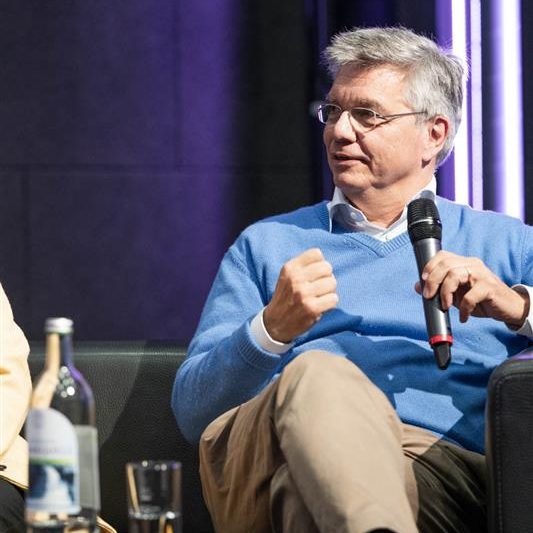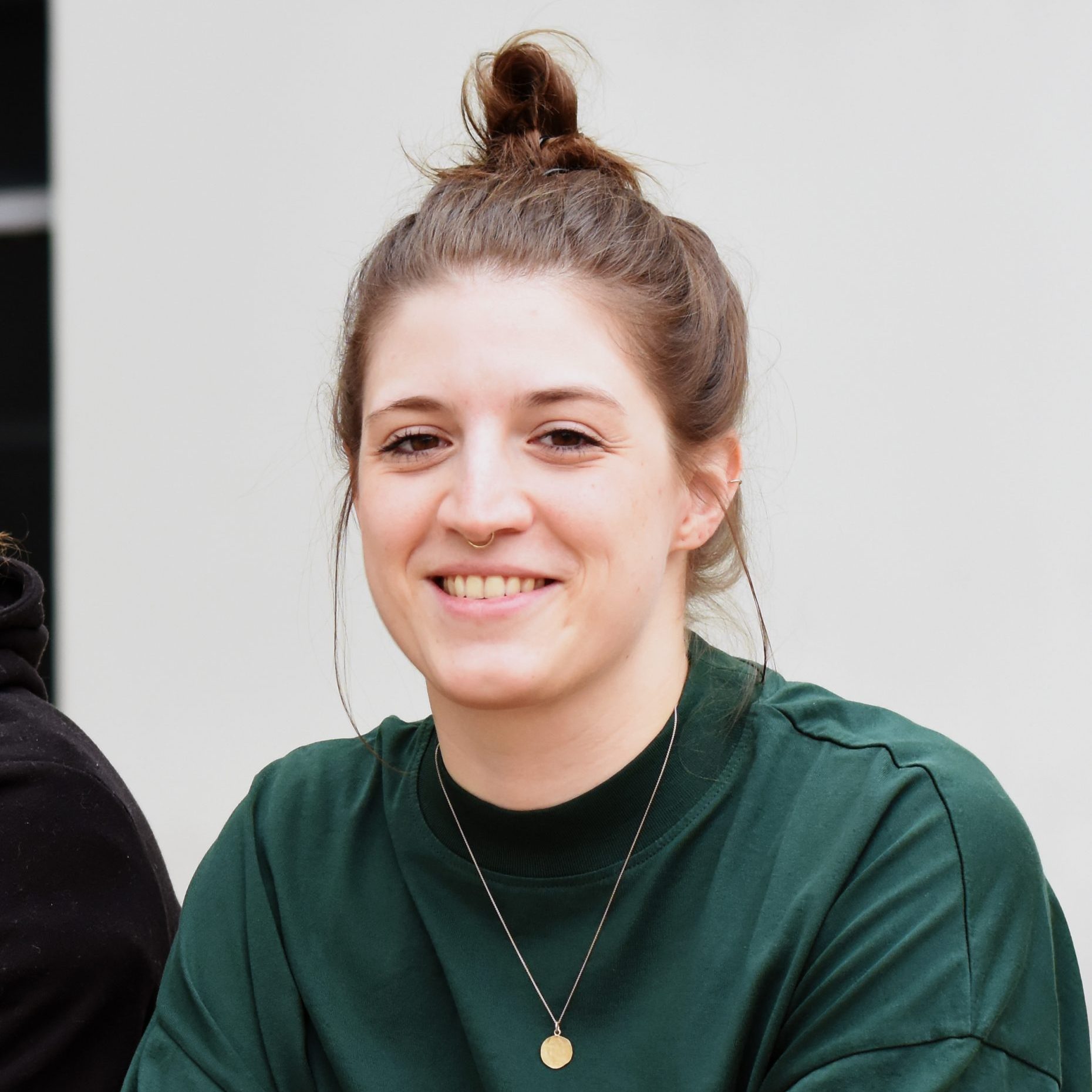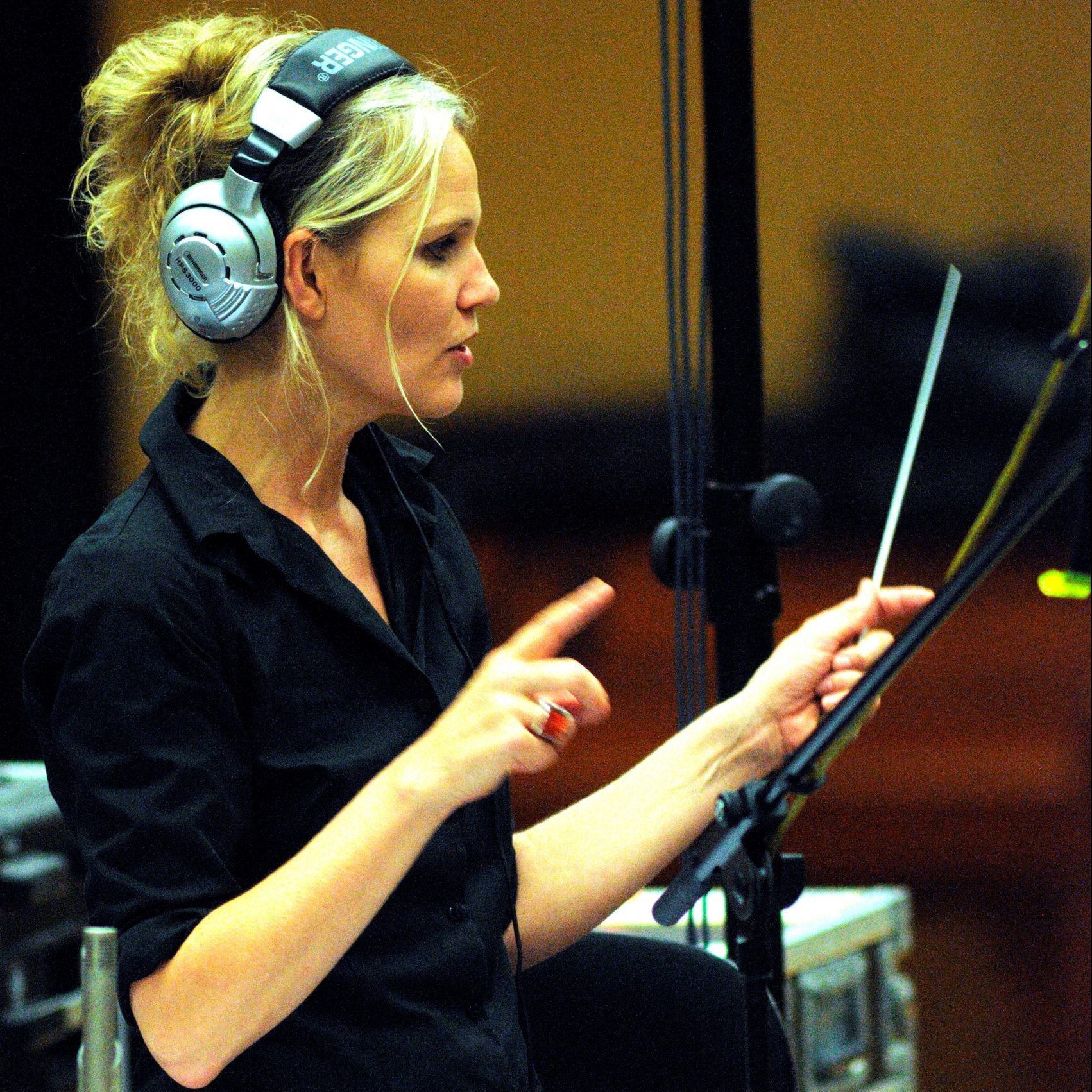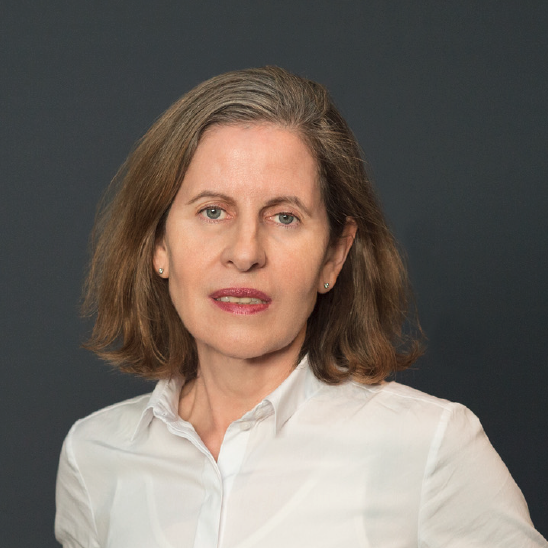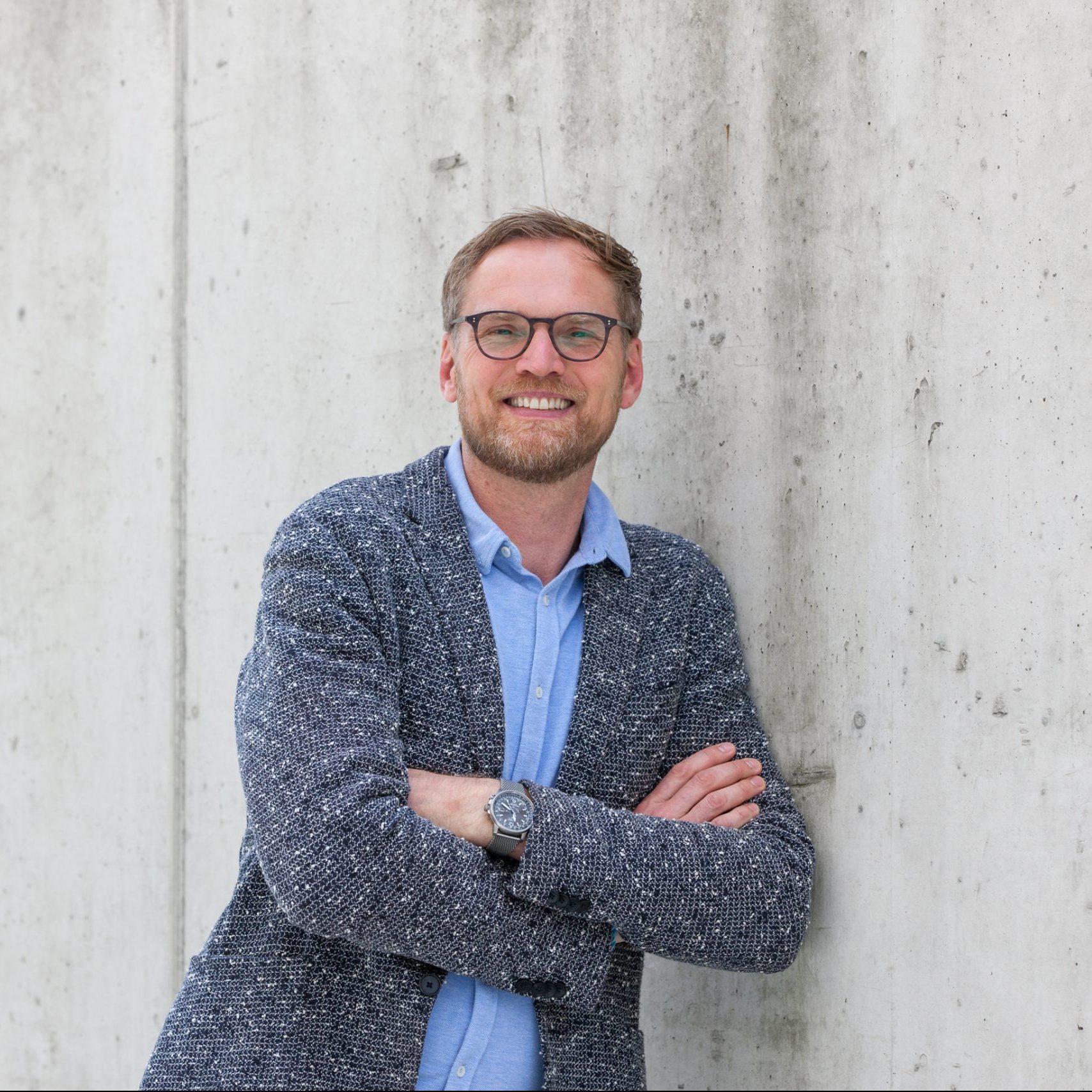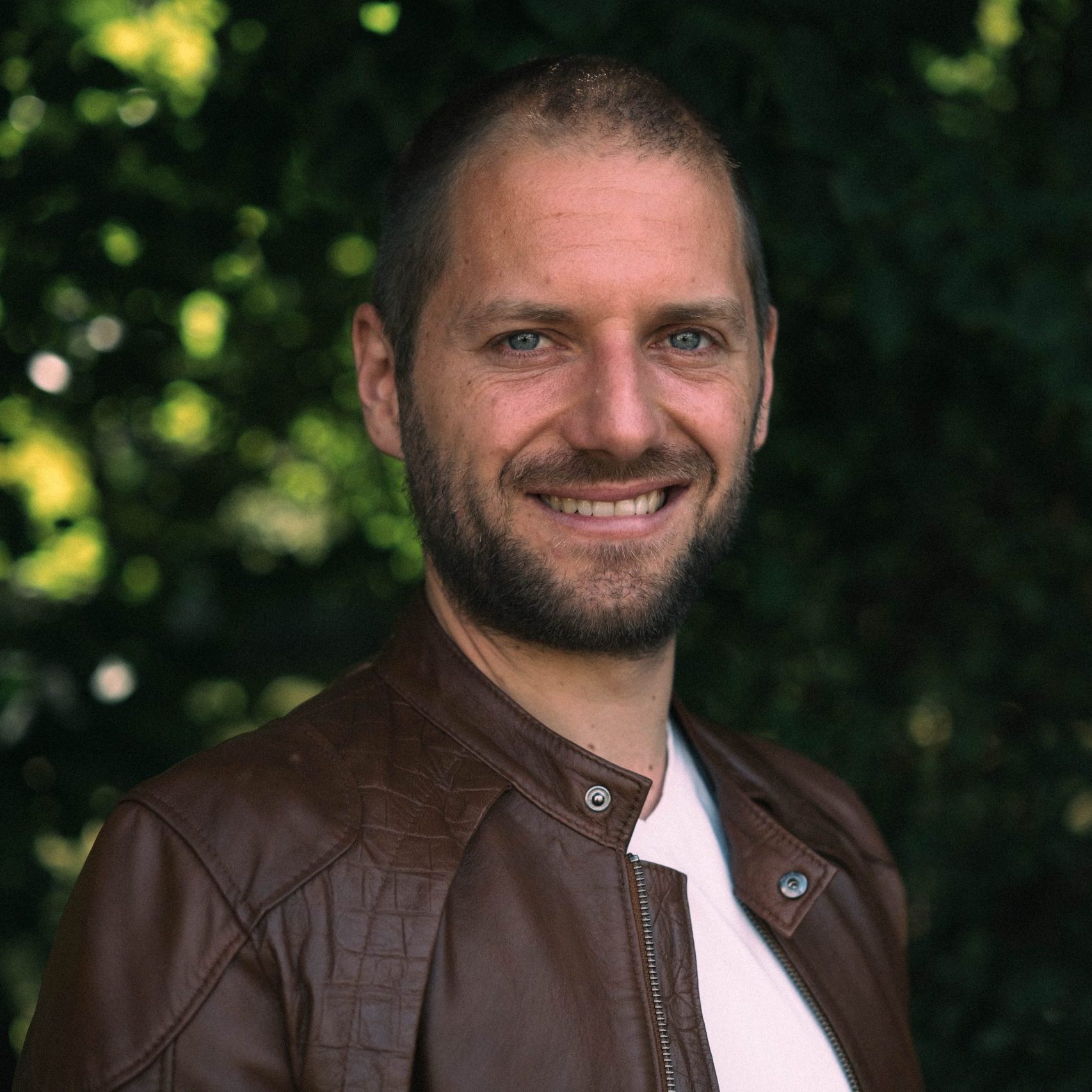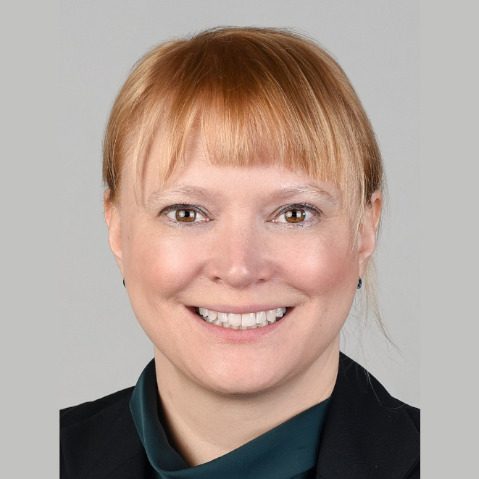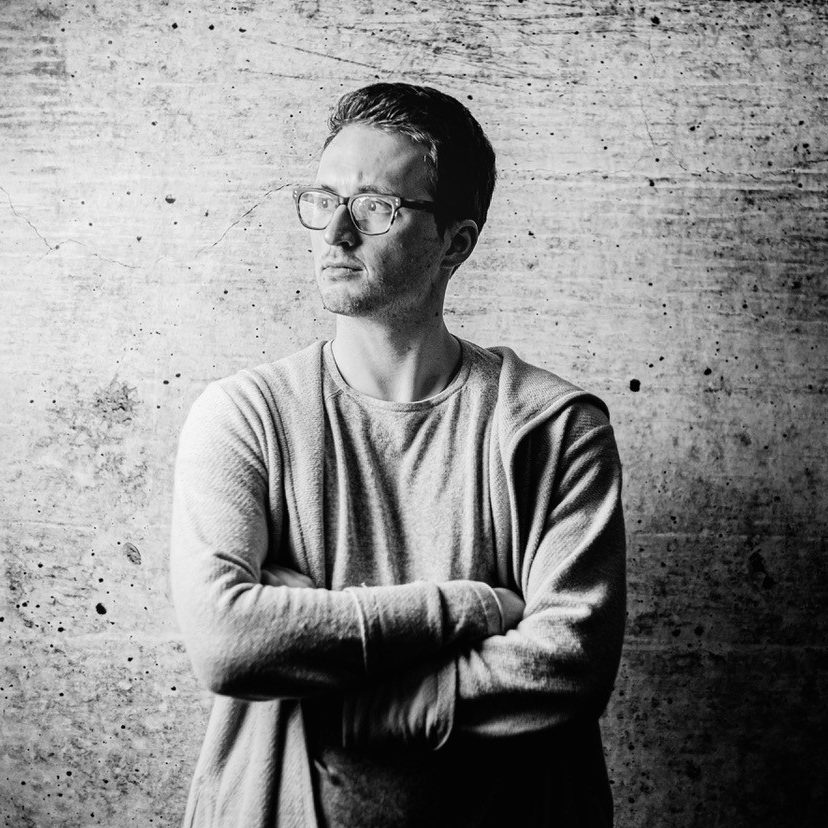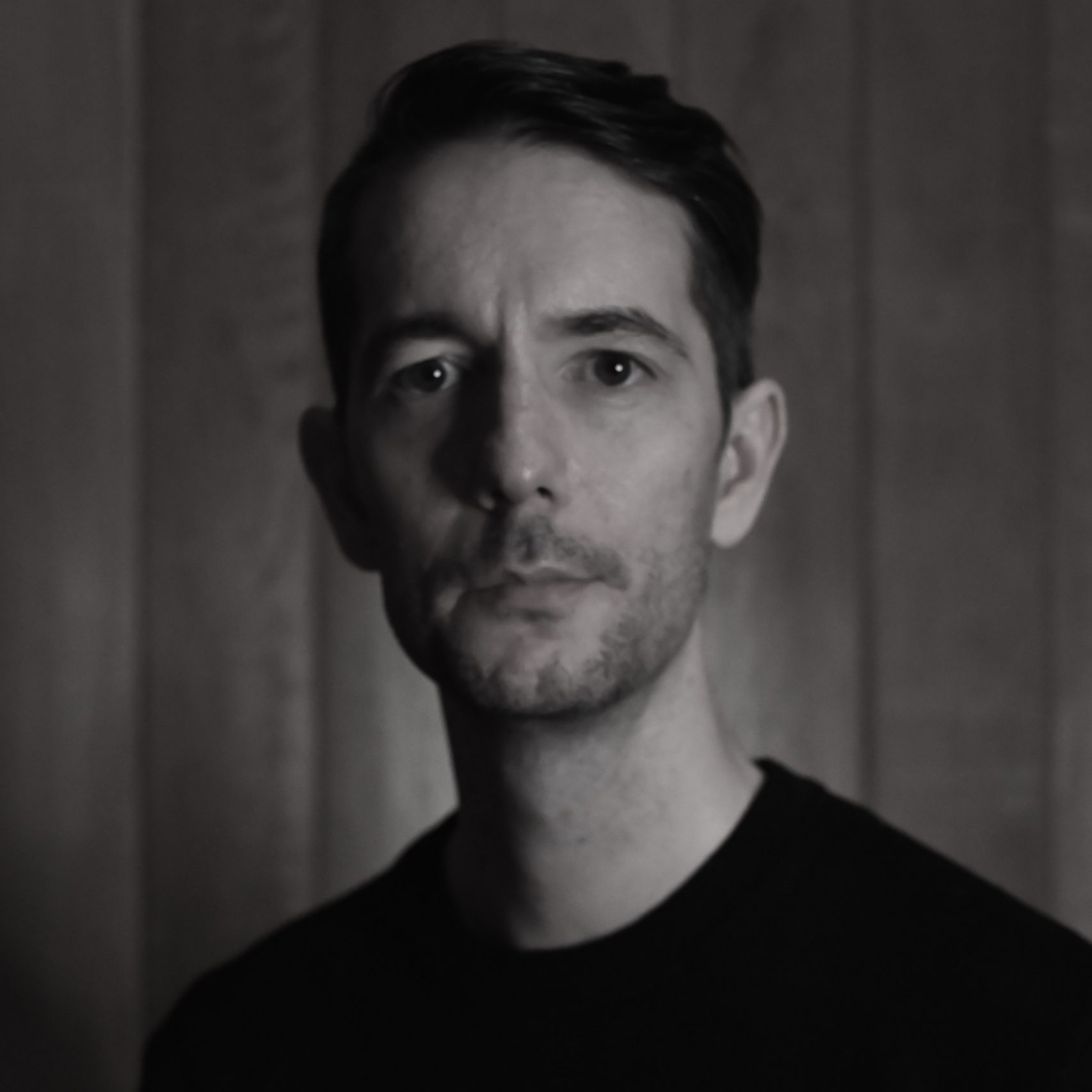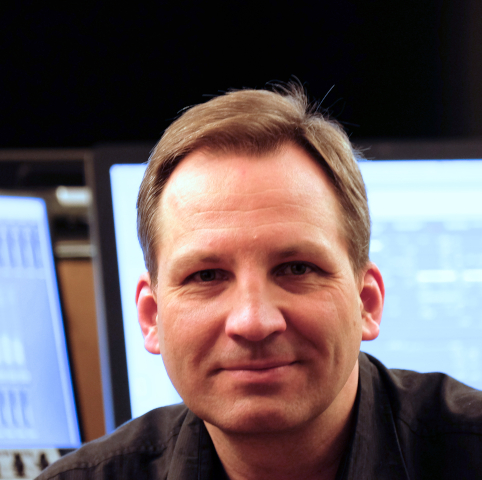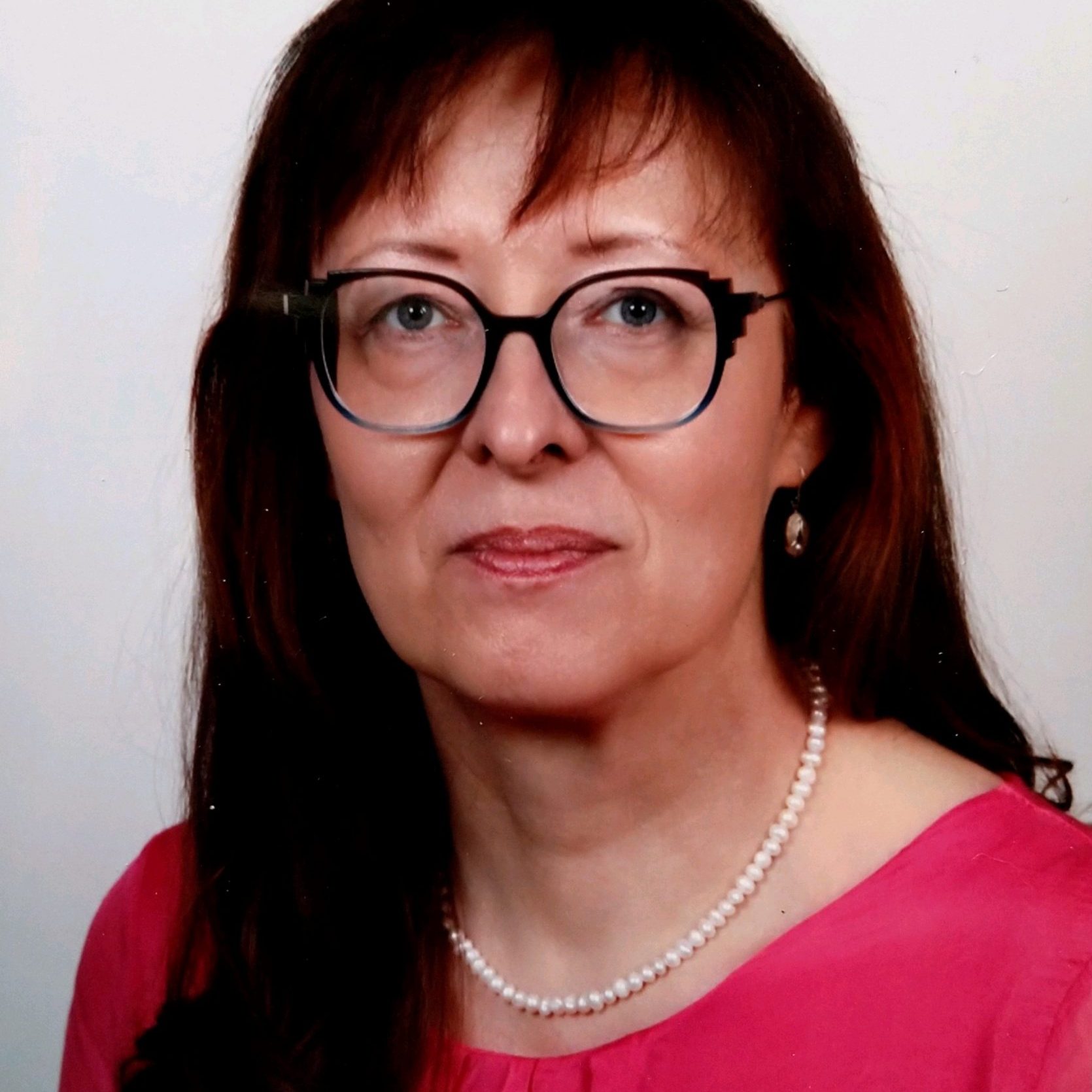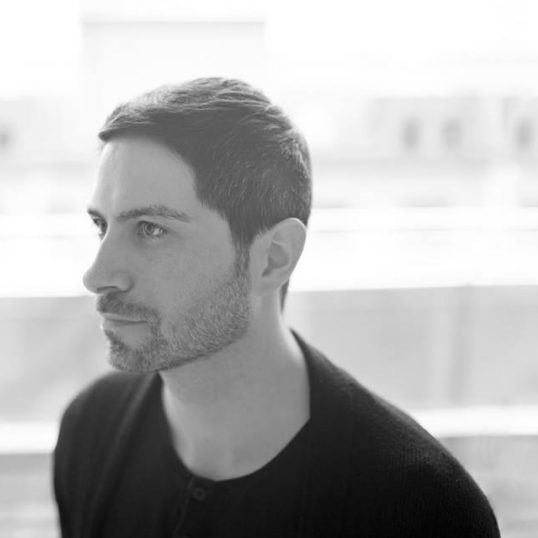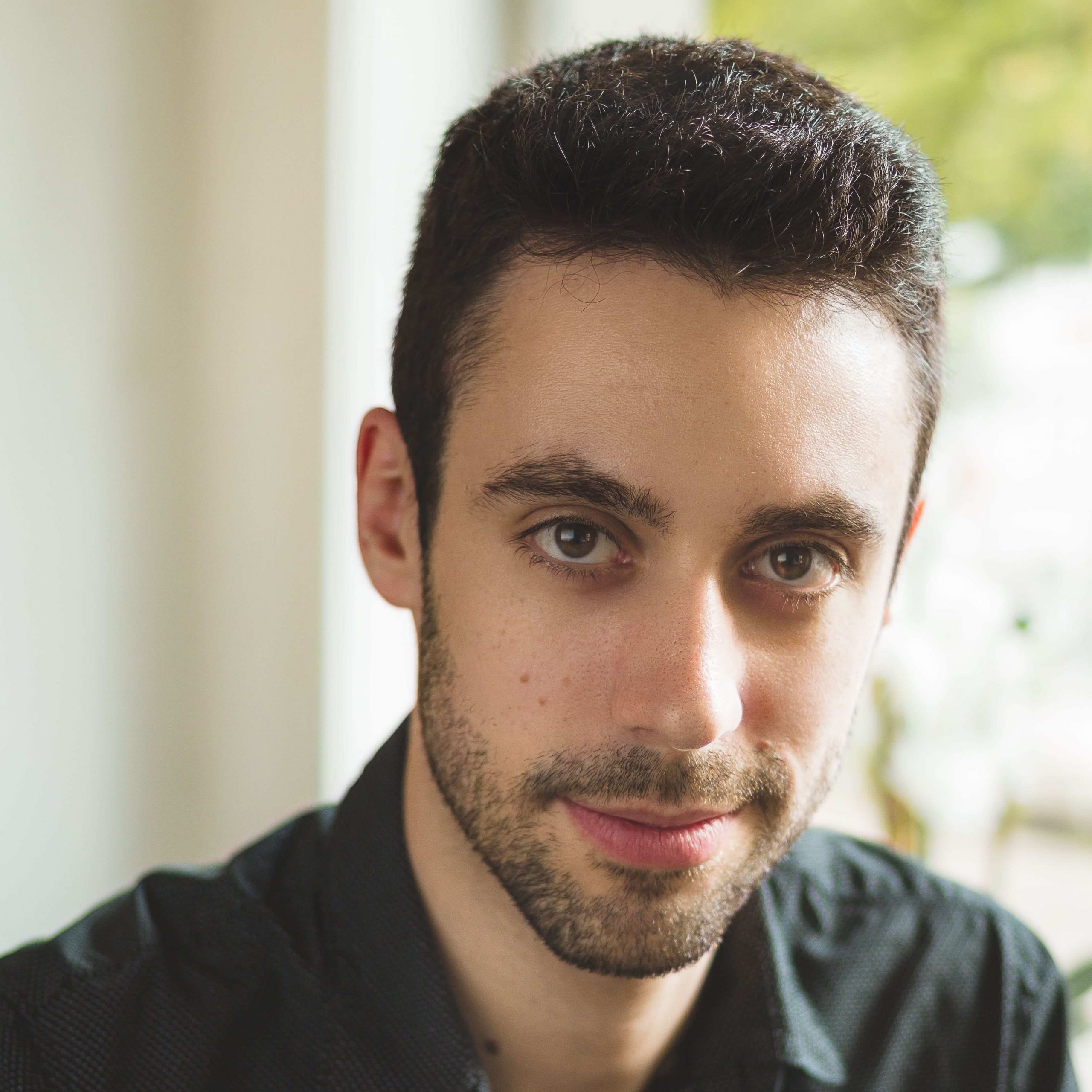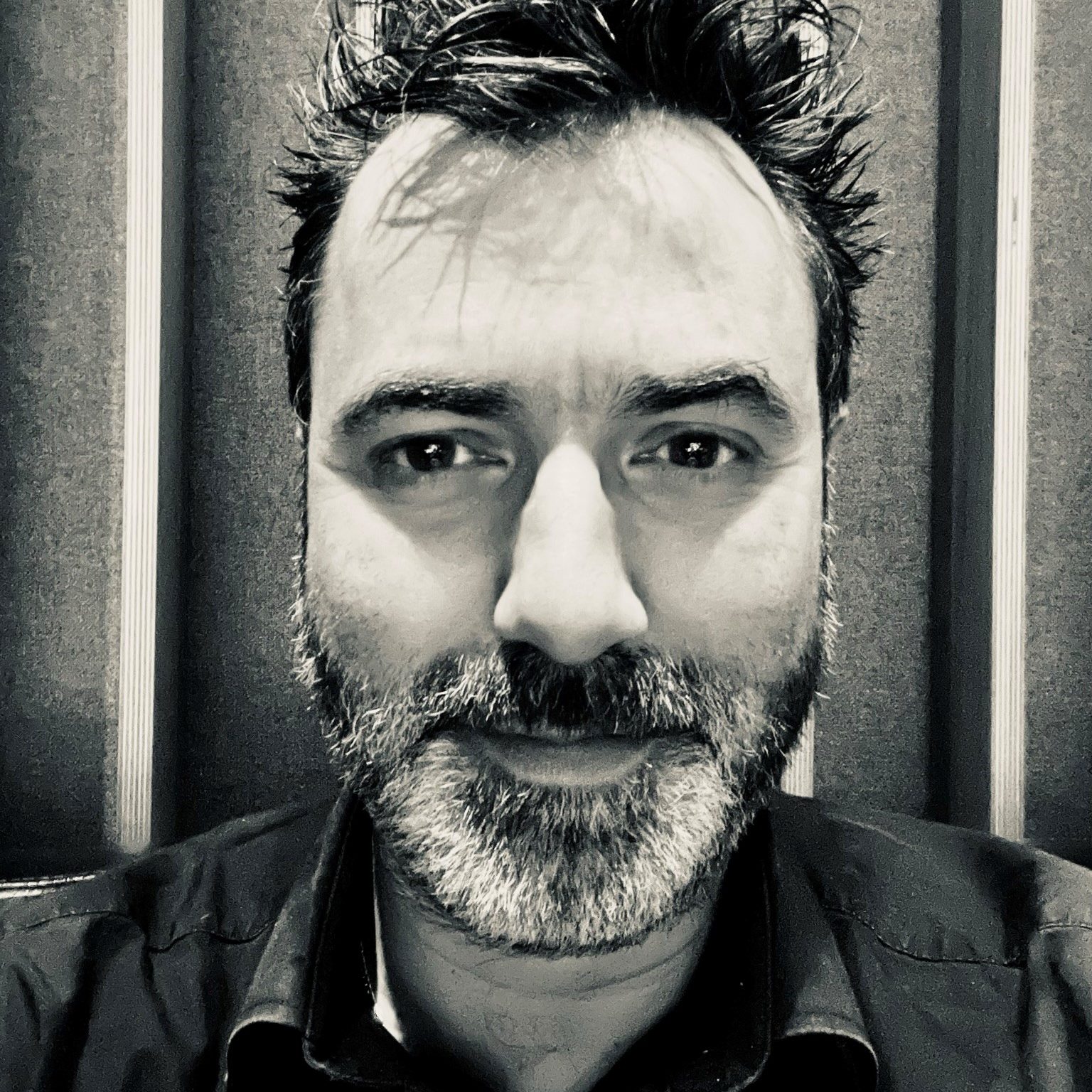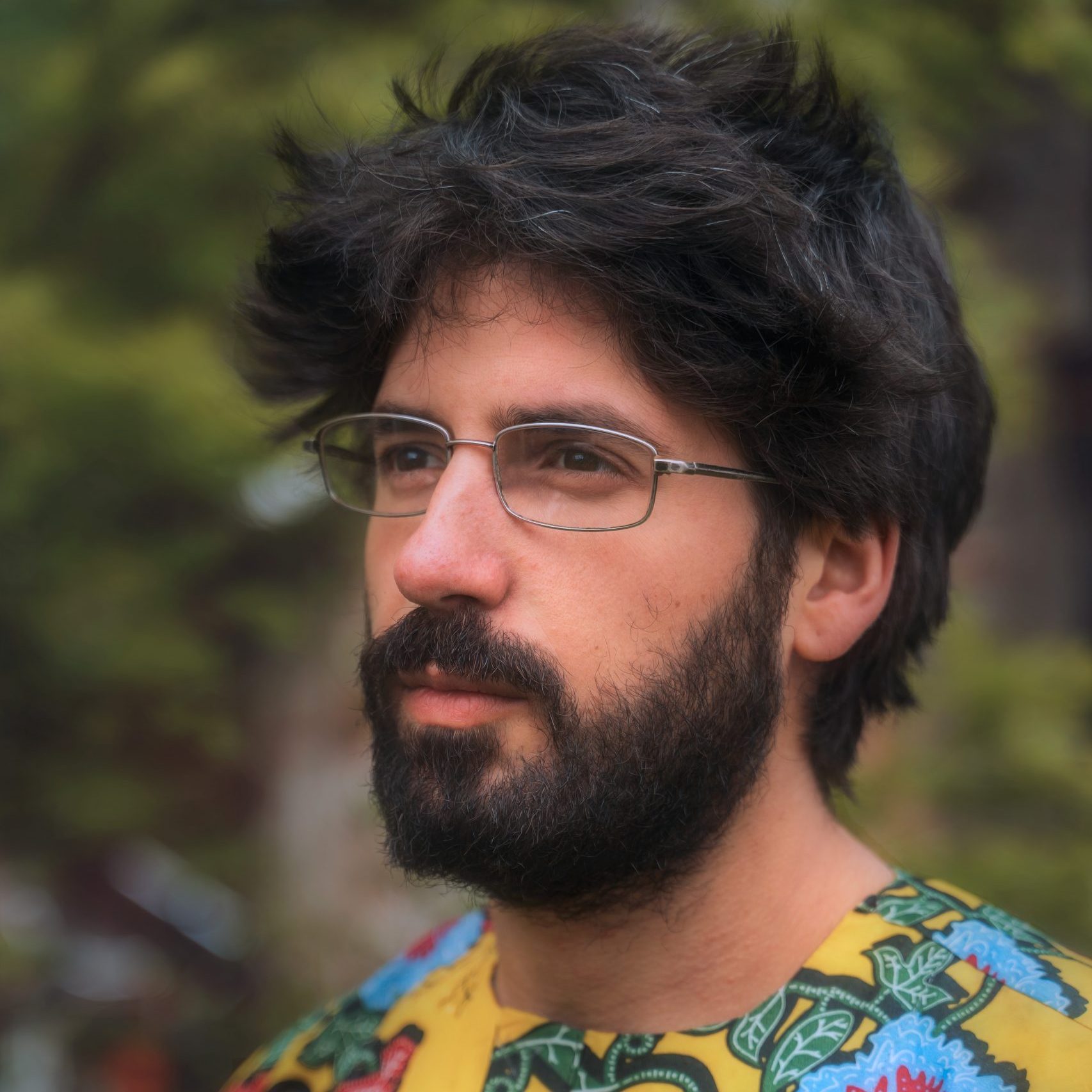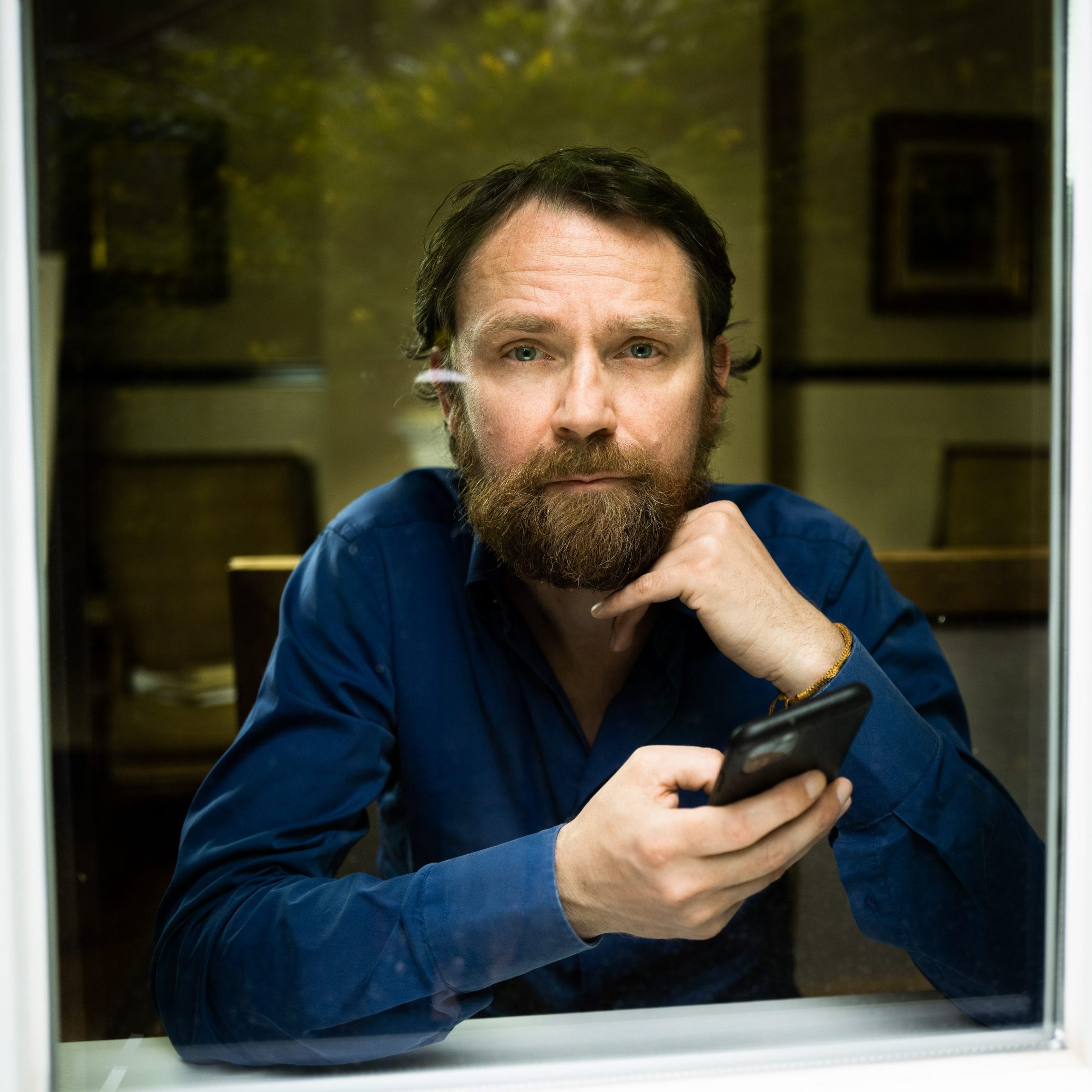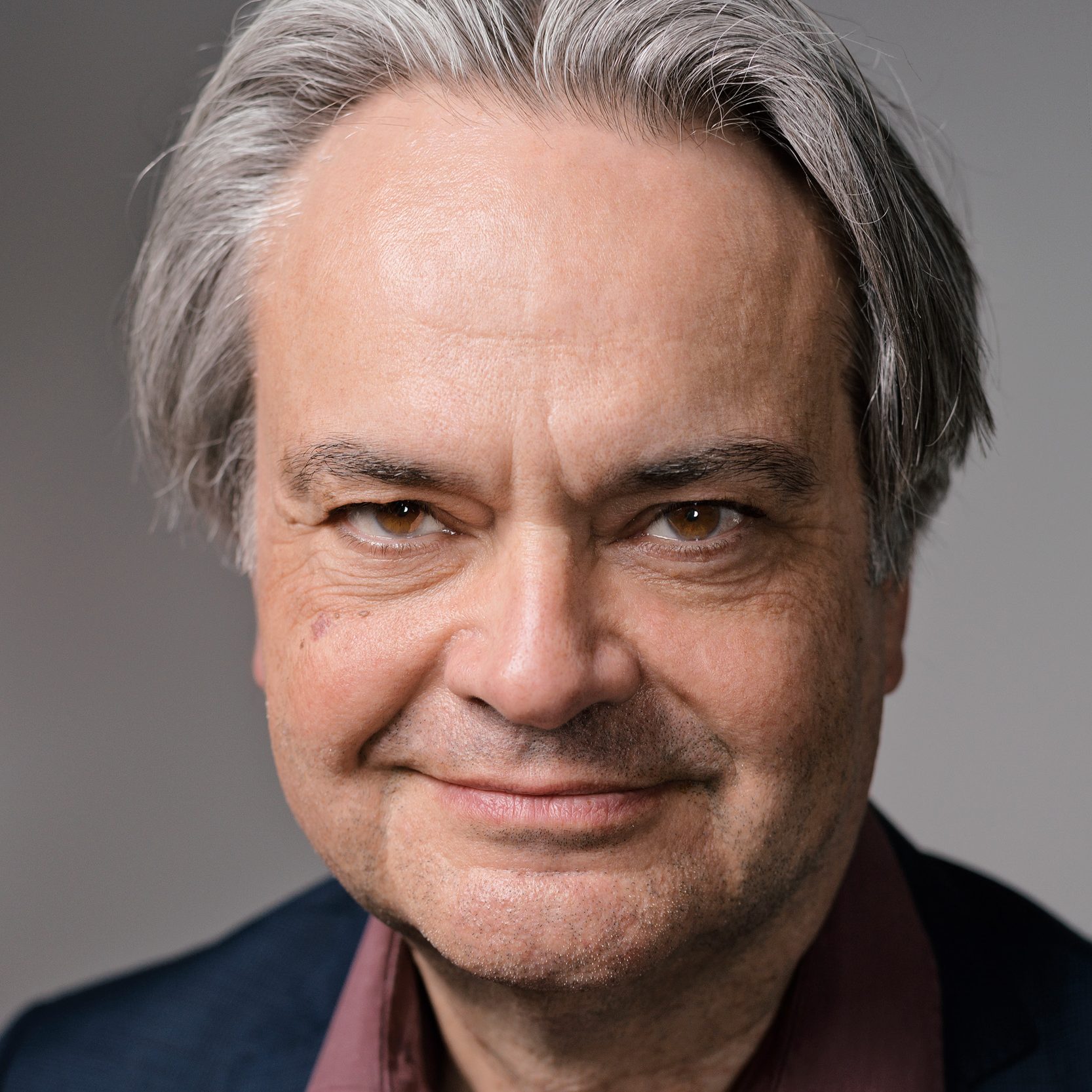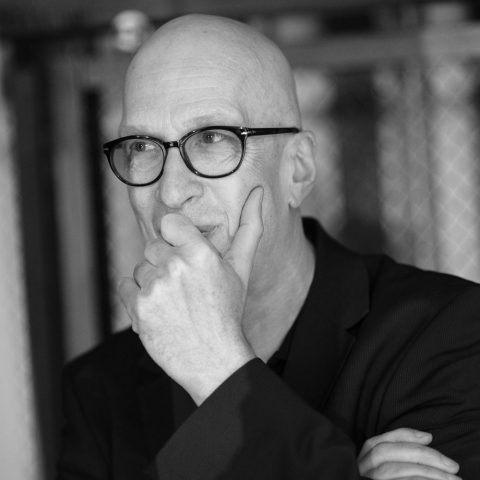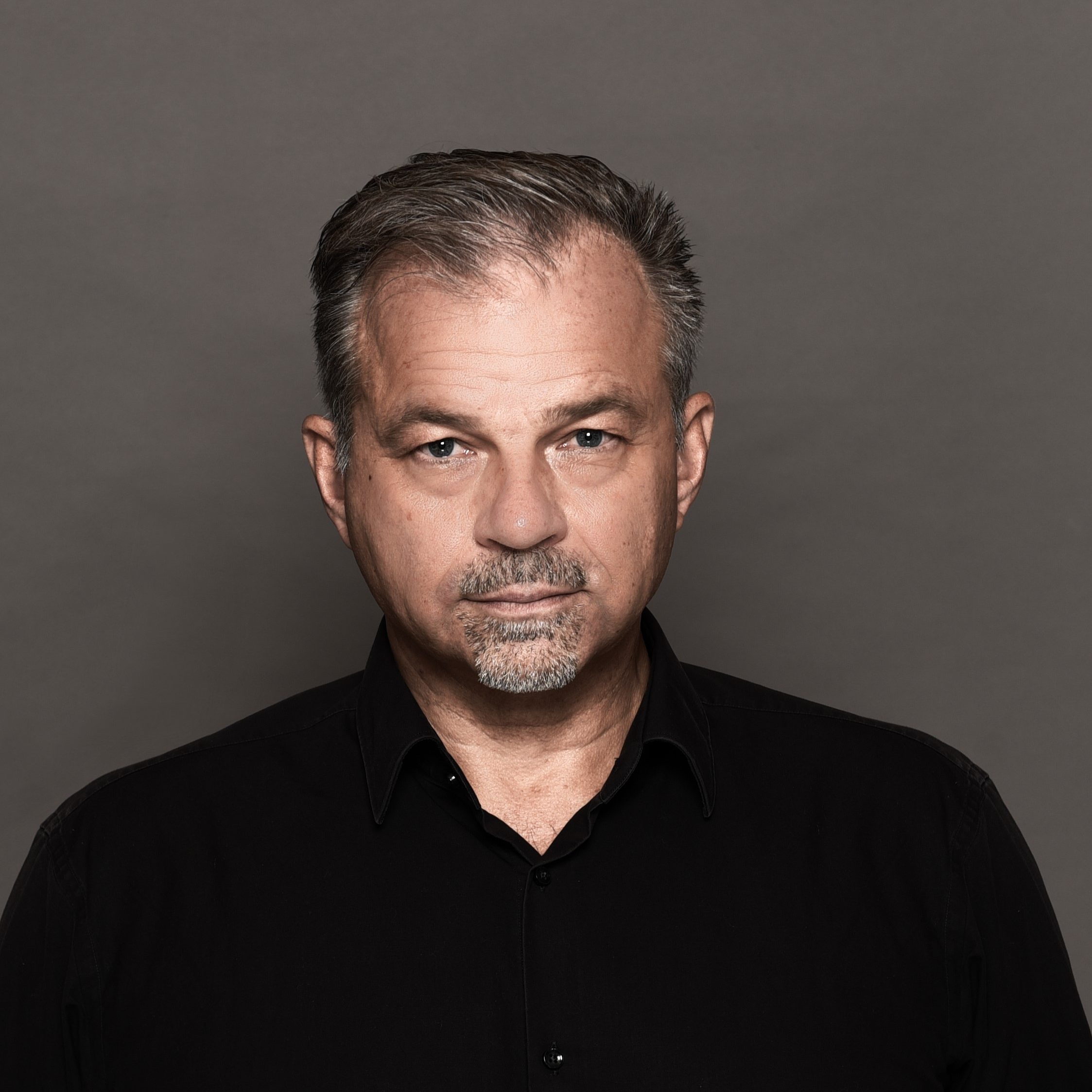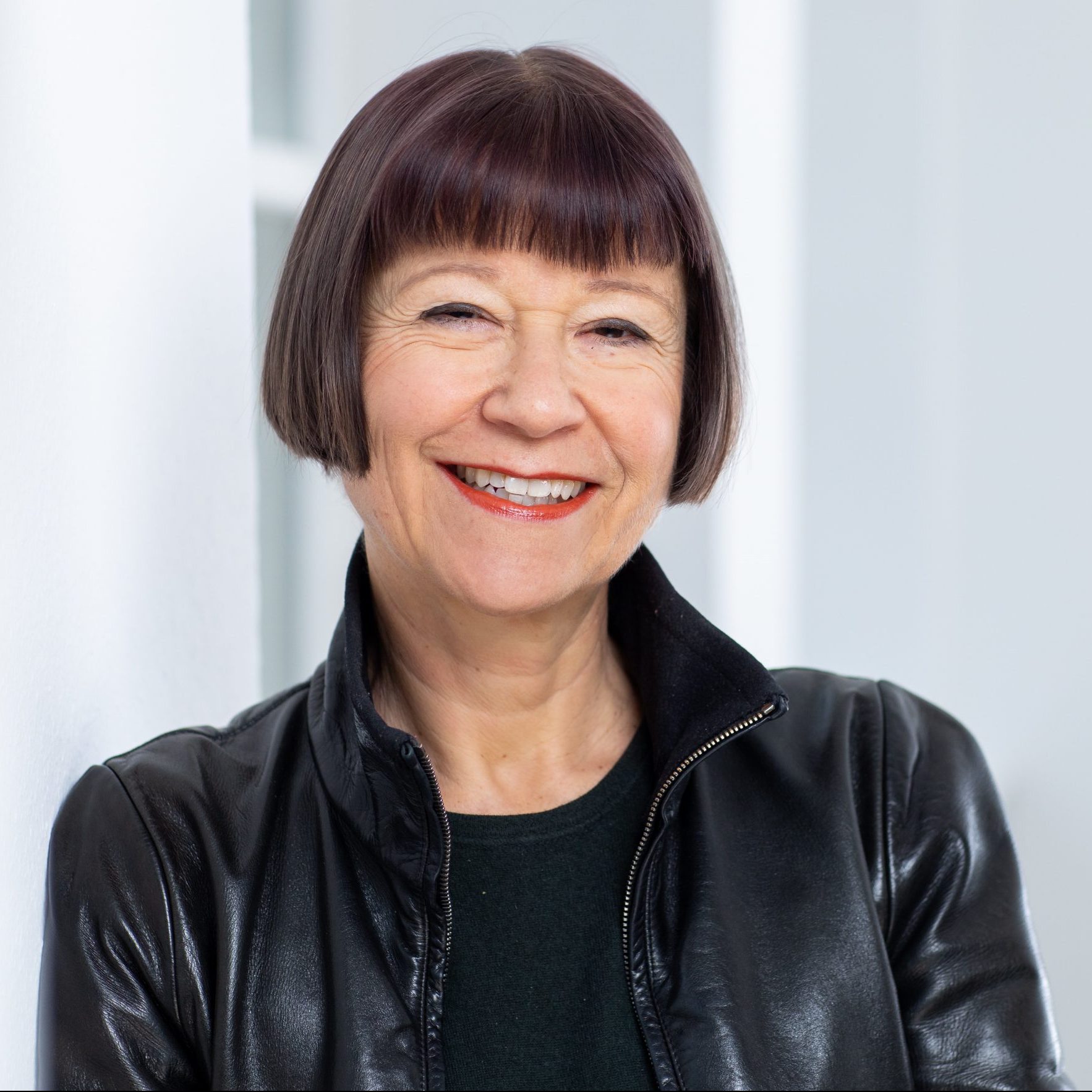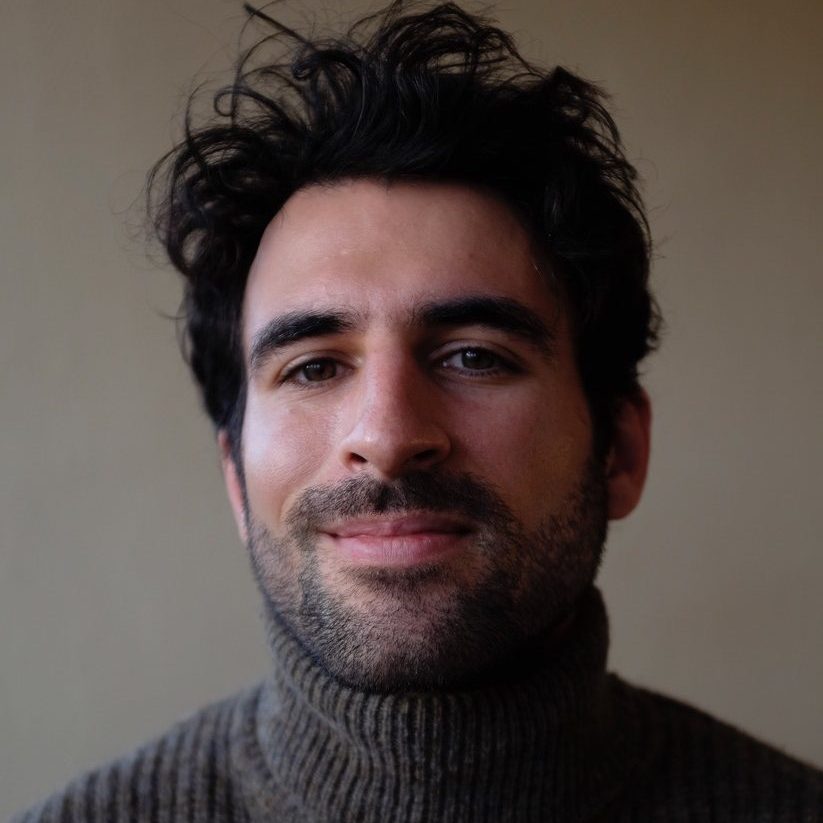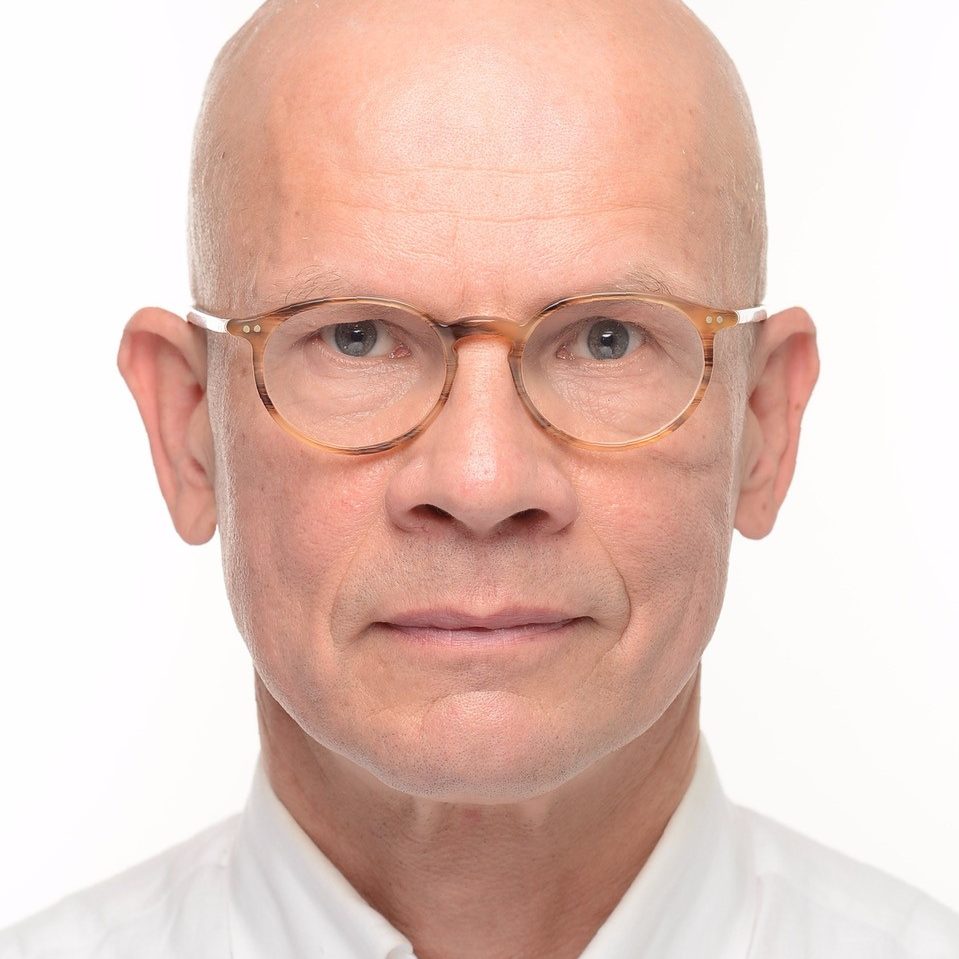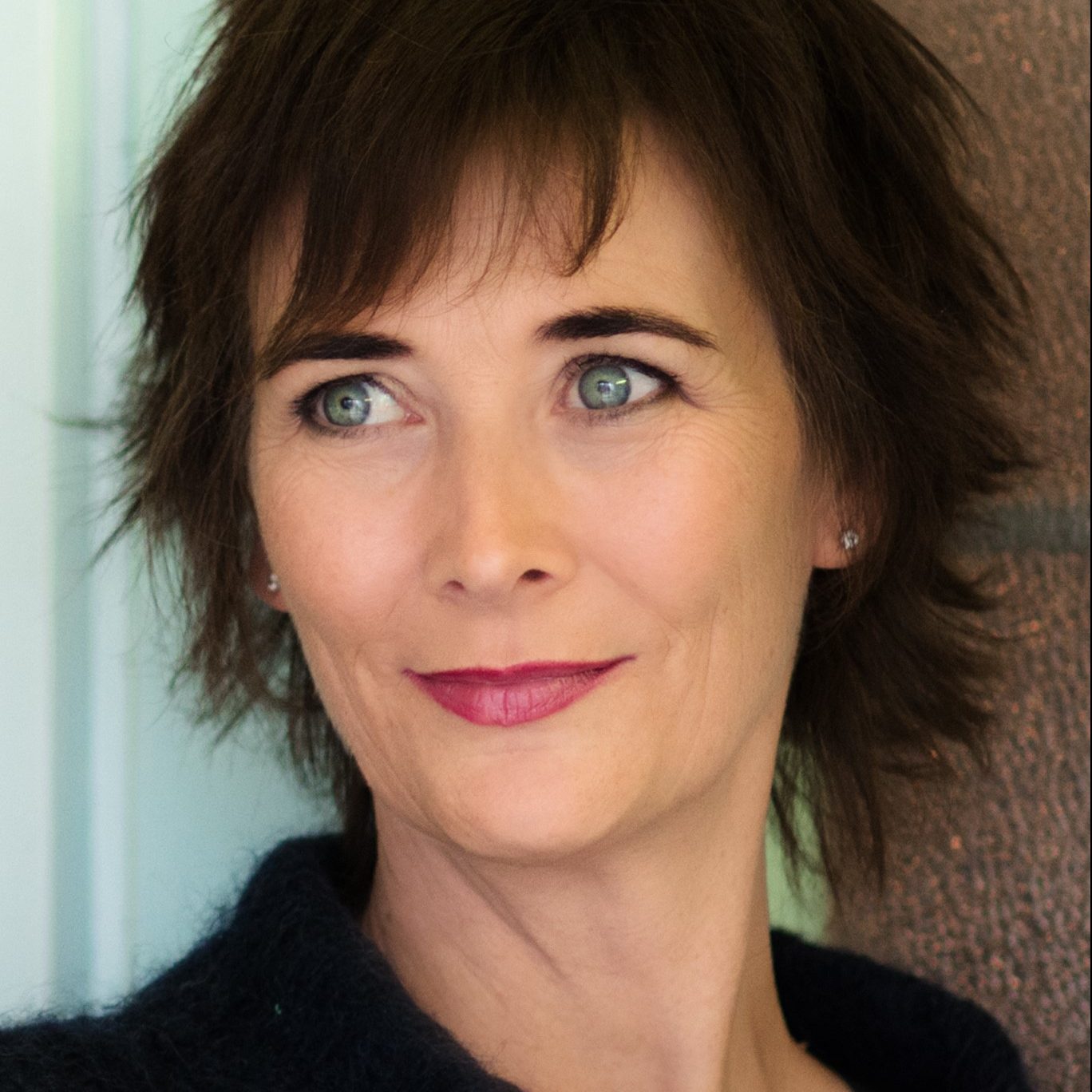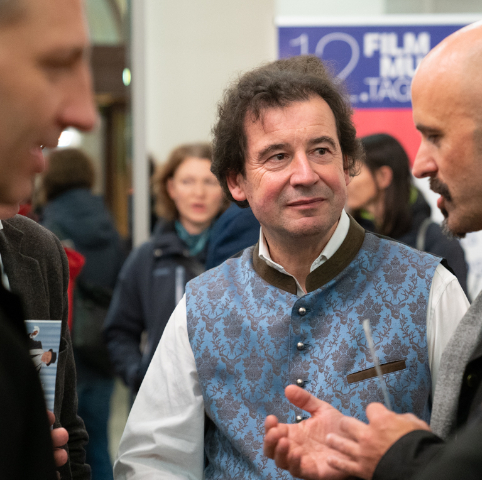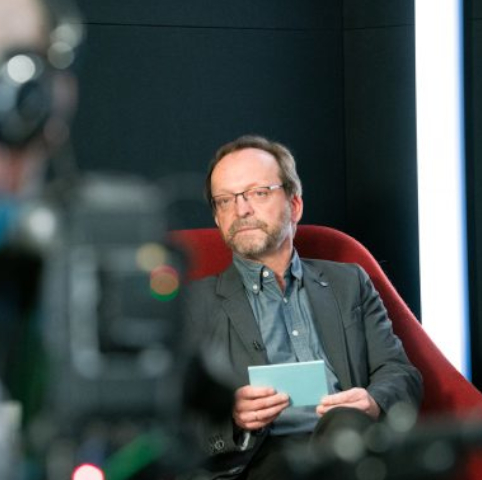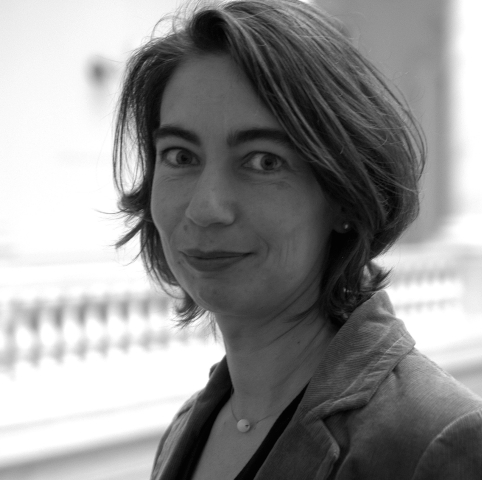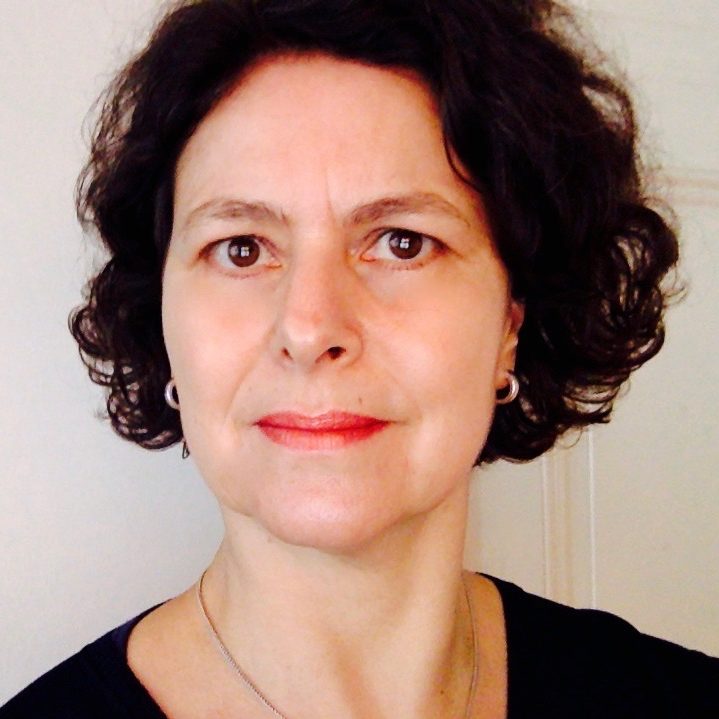Congress 2024
November 8-9, 2024 I Halle (Saale)
TRANSFORMATION - Artificial intelligence in film music - creativity according to new rules?
The congress of the Film Music Days Saxony Anhalt combined the science and practice of film music in exciting lectures and discussion formats over two days. Under the scientific direction of Georg Maas (Martin Luther University Halle-Wittenberg), a varied, professional and high-ranking program awaited those who know and are interested in film music. The event was therefore not only aimed at science and industry, but also explicitly invited interested musicians, students and lovers of film music.
Visual impressions of the congress 2023
Our speakers 2023
Alexander Thies
Referent
Alexander Thies runs the family company NFP* together with his brother Stefan Thies and Clemens Schaeffer. NFP* produces, finances and licenses TV feature films, series, multi-part films and documentaries as well as international and national cinema films. With over 60 years of experience, NFP* is active in the German and international cinema, TV and audio markets as well as in the cross-media sector and offers development, production and marketing from a single source. Alexander Thies is also Chairman of the Board of the International Academy of Media and Arts e.V. in Halle (Saale).
Anna Kühlein
Speaker
Anna Kühlein is a German film composer who works in Berlin and Leipzig. She studied music production with a focus on composition, piano and recording technology before successfully completing her studies in film music at the renowned Film University Babelsberg KONRAD WOLF in 2020. Her repertoire ranges from orchestral compositions to subtle, electronic and experimental sounds. Thanks to her versatility and empathetic intuition, she creates musical atmospheres and individual soundscapes for every project. Her TV work includes the internationally successful multi-part series "Ku'damm 59" (director: Sven Bohse, in collaboration with Maurus Ronner), the third season of the youth series "Wir sind jetzt" (director: Christian Klandt) and the ZDF Neo series "Decision Game" (director: Benjamin Pfohl) and "Was wir fürchten" (director: Daniel Rübesam). Anna Kühlein wrote the music for the highly acclaimed cinema documentaries "Wem gehört mein Dorf?" (director: Christoph Eder), which was nominated for Best Documentary Film in 2022, and "Anima - Die Kleider meines Vaters" (director: Uli Decker), which won the "Best Documentary Film" and "Audience Award Documentary Film" categories at the 43rd Max Ophüls Prize Film Festival. In 2022, she composed the music for Doris Dörrie's latest feature film, "Freibad". In 2019, she received the German Film Music Award in the "Young Talent" category for her achievements in the film music industry.
Annette Focks
Speaker
Annette Focks is a German composer who lives in Berlin and has won numerous national and international awards. She contributed music to over 170 German and international cinema and television productions. For more than 20 years, Focks has collaborated with various orchestras such as the Munich Philharmonic, the Berlin Philharmonic, the German Symphony Orchestra Berlin, the Slovak Philharmonic and the Czech Philharmonic. In addition to film scores, she also composes for the concert hall. Annette Focks is a member of the German Film Academy as well as the European Film Academy and, since 2019, a member of the Academy of Motion Picture Arts and Sciences, which awards the Oscar.
Dagmar Rosenbauer
Speaker
After studying theater, film and television, various positions at WDR and as managing director of a production company, Dagmar Rosenbauer now works as a freelance film and television producer. She has received the Grimme Award, the German Television Award, the German Business Film Award and the German Entertainment Award for her productions. She is currently producing the German-French series "Parlement" and is preparing an international cinema production.
Prof. Dr. Daniel Mark Eberhard
Speaker
Since 2015, Daniel Mark Eberhard has been Professor of Music Education and Music Didactics at the Catholic University of Eichstätt-Ingolstadt. After several years of teaching at schools and as a university lecturer and research assistant, he was a substitute professor at the University of Augsburg and a visiting professor of music education at the largest art university in Europe, the Berlin University of the Arts (UdK). He is the author of more than 200 specialist publications and an internationally sought-after speaker in music teacher education and in selected areas of extracurricular music education. In addition to his work in committees and associations at the university, state and federal level, he is engaged as a reviewer, juror and member of accreditation committees as well as head of the Master’s program “Inclusive Music Education/Community Music”, which is unique in Europe. His artistic work as a musician and ensemble leader is documented on over 40 CDs/DVDs. He has performed with renowned artists at international classical and jazz festivals. Among other things, he was the founder and for more than 12 years the head of the Uni Big Band Augsburg as well as artistic director of a ZDF live production, and he is also an endorsement artist for several global instrument manufacturers. His scientific, artistic, and educational work has been recognized several times with awards, most recently with the Uniservitate Global Award 2022, the Kulturpreis 2022 (Culture Award) of the Bavarian State Foundation and in 2023 with the Award for Excellent Teaching of the Catholic University of Eichstätt-Ingolstadt.
David Reichelt
Speaker
Born in Munich in 1986, the composer David Reichelt is known for his extraordinary scores, which he creates for films and series both in the cinema and on television. His musical expertise spans a wide range of genres, with roots in classical music and jazz. He received awards for his compositions and appeared as a saxophonist in various ensembles in Europe during his school years. Reichelt’s artistic journey began with the study of composition for film and media at HMTM (Hochschule für Musik und Theater – School of Music and Theater) in Munich after studying musicology, music education and computer sciences at Ludwig Maximilian University Munich. His works are characterized by the skillful fusion of a wide range of musical genres, including classical music, jazz, folk, and electronic elements, creating a particularly wide range of tonal elements. His work has received several awards, including the German Film Music Award for the title song “One Single Rose” from “König Laurin” and the soundtrack to “8 Tage”.
Prof. Dr. Franziska Heller
Speaker
Prof. Dr. Franziska Heller is Professor of Media Studies (Media and Digital Cultures) at Martin Luther University Halle-Wittenberg. After many years of also application-oriented research and teaching at the University of Zurich (UZH), she was Senior Fellow at the Forschungskolleg Cinepoetics at the FU Berlin in 2019- 2021 and FONTE Visiting Professor at the Filmuniversität Babelsberg KONRAD WOLF in Potsdam. Most recent monograph: Update! Film and Media History in the Age of Digital Reproducibility. 2020 published by Brill/Wilhelm Fink in print and open access. She is also the author of Film Aesthetics of the Fluid. Currents of Narrative from Vigo to Tarkovsky, from Huston to Cameron (Wilhelm Fink 2010) and Alfred Hitchcock. Introduction to his Films and Film Aesthetics (Wilhelm Fink 2015).
Fabian Kratzer
Speaker
Fabian Kratzer is an award-winning composer from Nuremberg. After completing his Bachelor’s degree at the school for music studies in Düsseldorf, he graduated with honors from his Master’s course Scoring for Film, Television and Video Games at the prestigious Berklee College of Music in Boston/Valencia. Fabian was awarded the Jerry Goldsmith Award 2023 in April. He has also been nominated for several international awards, including the European Talent Award, the Hollywood Music in Media Award and the Hollywood Independent Music Award. Fabian has worked for well- known brands such as Unicef, Siemens, and Thyssen-Krupp, and has written music for short and feature films as well as plays. The documentary “Über Grenzen – der Film einer langen Reise”, for which he wrote the music, was released in cinemas across Germany in September 2019. Other TV films for the SWR and ARD have followed since, including the travel documentaries “Einfach Abgefahren”, “Running Wild in Afrika”, “Barfuß über den Nil” and “Hoch Hinaus”. Fabian also writes free instrumental works in addition to media music. His string quartet “In Between” was released in June 2022. Fabian is also a writer and published the first novel of his trilogy “Im Schatten des Lichts” in 2021. Part 2 followed in May 2023.
A composer, producer, artist manager and recording engineer, Fritz Myers began his career as a composition student at Carnegie Mellon University in the fall of 1999. For the next 24 years, he navigated an ever-evolving music industry, working on everything from low-budget indie films to live theater to major label album projects.
Ingo Frenzel
Speaker
Ingo Ludwig Frenzel studied at the Berlin University of the Arts and the Hanns Eisler Academy of Music Berlin, specializing in composition, piano and conducting. He composes music for series, TV and feature films, including productions such as "Goethe!" (2011), "Lollipop Monster" (2011), "Der Medicus" (2013) and "Schachnovelle" (2021). The 2007 film "Spielzeugland" by Jochen Alexander Freydank was particularly successful, winning the Oscar for Best Short Film for 2009 and numerous other awards. At the 2015 Berlinale, Frenzel was awarded the European Composer Songwriter Alliance (ECSA) prize in the Best Orchestral Score category for the music to the film "Der Medicus". Outside of film, Frenzel has also worked for the Deutsche Staatsoper (Orpheus 2011), the Volksbühne Berlin (Johnny Chicago with Kurt Krömer), the Residenztheater Munich and the Bregenz Festival of the Vienna Philharmonic, among others.
Dr. Irina Gemsa
Speaker
Irina Gemsa comes from Nordhausen am Harz and studied German, Russian, and music for teaching at high schools in Erfurt, Halle/Saale, and Odessa (Ukraine). She completed her internship in Magdeburg and then taught German as a foreign language at a secondary school in Erevan (Armenia). Then she entered the teaching profession in Thuringia, where she teaches at various regular schools and high schools, currently at the state’s Herder-Gymnasium Nordhausen, mainly the subjects of German and music in all grades. The management of various singing and instrumental ensembles is an integral part of her everyday professional life. In January 2023, Irina Gemsa received her doctorate under Professor Georg Maas at Martin Luther University Halle-Wittenberg in Halle/Saale on the subject of music by Johann Sebastian Bach in literary films and published her dissertation in September under the title “Das Buch, der Film und der Bach” at the Schüren Verlag Marburg.
Kyan Bayani
Speaker
Kyan Bayani is a composer and sound artist. He graduated from the Berlin University of the Arts, where he studied under the artistic-academic guidance of Sam Auinger, Robert Henke and Hans Peter Kuhn. His repertoire of composed music ranges from feature films and documentaries, television series to dance choreographies and theater plays. His affinity for sound art is reflected in his multi-channel sound installations and sound objects. In the course of this, he has realized projects in Europe, Japan and South Korea, among others. His music can also be found in Oscar-nominated films such as Collective, Red Suitcase and the Bad Banks series. His work focuses on exploring the relationship between sound and the different architectural or emotional spaces it can occupy. In his compositions, he likes to combine everyday sounds, field recordings and traditional instruments. In order to bring out the complexity of this interaction time and again.
Levente Kovács
Speaker
Levente Kovács (1993) is a Hungarian composer. He studied Applied Composition at the Franz Liszt Academy of Music in Budapest. In 2018, he completed his Master’s degree in Media Composition at the University of Music and Performing Arts, Vienna. He was a finalist in the FMF Young Talent Award(s), Transatlantic Film Score Competition, and the Oticons Faculty Film Score Competition. Levente has taken part in numerous film music courses. He had the opportunity to learn from Alexandre Desplat and John Debney, among others. In 2017, he was selected as one of 12 composers from over 300 applicants for the ASCAP Film Scoring Workshop in Los Angeles. He recorded his own music for a scene from “Cinderella” at 20th Century FOX Studios. He was the orchestrator of the 90- minute “Sound of Thrones” concert in Budapest and the Oscar Medley for the Hollywood concert in Vienna. In 2018 and 2019, Levente finished second in the Vienna Film Music Award. He finished second in the Pannonia Film Music Competition and received the Junior Prima Award in Hungary in 2019. In 2020, he won the German Game Music Award. His music for the two video game trailers was performed by the Bremen Youth Orchestra. In 2021, he and Nadiia Odesuk composed the film score for the Ukrainian film “Sniper. The White Raven”. He occasionally writes audio demos for the Vienna Symphonic Library and has been working for four years as a freelance composer, arranger, pianist and piano teacher in Augsburg.
Loïc Collignon
Speaker
Loïc Collignon was born in Belgium in 1977 and is a musician (keyboard) and electronics engineer. He studied in the sound department of the Belgian film school IAD in Louvain-la-Neuve and graduated in 2000. From then until 2012, he worked as a sound engineer for Belgian television. Since 2012, he has been employed by Philophon Studios in Luxembourg.
Ludovico Failla
Speaker
Ludovico Failla is a musician, composer, performer, instrument builder, based in Leipzig, Germany. With a Degree in Electronic Music Composition and an extensive experience in composing for film, installations, performances and multimedia projects, he's currently focusing on composing for film and developing his more acoustic performative side thru the study of the Kora, the west african mandinka lute-harp. He's also involved in: Baraka Duo: Kora/Piano duo with pianist Hakim Azmi in which they reinvent traditional west african repertoire alongside original modal compositions. Musical Director, Instrument Designer and Composer for a series of performances and theater pieces devolped in collaboration with Pedro Henrique Risse and supported by LOFFT theater, which include the design of novel musical instruments, and an extended multimedia setup. Instrument builder: builder of Kora lute-harps and developer of a mechanical pedal extension for the Kora lute-harp which allows for note bending and fast retuning, opening up new expressive possibilities.
Mario Schneider
Speaker
Mario Schneider was born in 1970 in Neindorf and studied musicology, philosophy, and art history at Martin Luther University Halle-Wittenberg until 1996. In 1996, he also completed a degree in composition at the school for music studies in Leipzig. He was part of Moderato Publishing from 1995 to 2002. There he learned from the well-known Peter Meisel. Since 1995 he has worked in several first-class studios, such as Hansa Studios Berlin, and with producers such as Martin Phillips. He worked with Harold Faltermeyer on several scores at Red Deer Studios. A film composition diploma under Professor Enjott Schneider followed at the school for music studies in Munich from 1998 to 2000. He has been working in his own recording studio in Halle (Saale) since 2003. In 2018, he received the German Film Music Award for best song.
Michael Chauvistré
Speaker
Michael Chauvistré is a director and film producer. After studying history and philosophy in Aachen and Constance, he took on assistant directing positions at theaters and studied feature film directing at the Munich University of Television and Film from 1986. In 1988 he founded the production company Happy Endings Film. He is a member of the German Film Academy and on the board of the Federal Association of Directors (BVR).
Michael Gajare
Speaker
Michael Gajare studied musicology at the University of Hamburg and music at the Hamburg Conservatory. His first film music compositions were for ZDF in 1988. To date, he is responsible for the musical scoring of various television productions, such as documentaries, television series, children's television, television films for ARD, ZDF, SAT1. Michael Gajare has been the chairman of the music section in the "German Academy for Television" since 2022.
Micki Meuser
Speaker
Micki Meuser is the chairman of DEFKOM - German Film Composers' Union, which co-initiated the German Film Music Award. He is on the board of the German Composers' Association (DKV) and a member of the GEMA supervisory board. Meuser has written the music for over 60 films, including international feature films with Daniel Craig, Kirstin Dunst or Lynn Redgrave and many feature films for ZDF and ARD, as well as music for TV series in Germany and the USA. He has produced albums and written songs for artists such as Ideal, Die Ärzte, Ina Deter, Silly, Lassie Singers, Nervous Germans and many others.
Ralf Wengenmayr
Speaker
His successful collaboration with director Michael Bully Herbig began with “Erkan & Stefan” (2000). This was followed by the soundtracks for “Der Schuh des Manitu” (2001), “(T)Raumschiff Surprise – Periode 1” (2004), “Lissi und der wilde Kaiser” (2007), “Wickie und die starken Männer” (2009), “Buddy” (2013), “Bullyparade – Der Film” (2017), and “Ballon” (2018). The music for Christian Ditter’s 3D film “Wickie auf großer Fahrt” (2011) and “Love, Rosie – Für immer verliebt” also sprung from his pen. Ralf Wengenmayr wrote the music for Tobi Baumann’s “Gespensterjäger – Auf eisiger Spur” (2015) and for Dennis Gansel’s film adaptations of the novels “Jim Knopf und Lukas der Lokomotivführer” (2018) and “Jim Knopf und die Wilde 13” (2020). In addition to five nominations at the German Film Awards for Best Music, the soundtrack to Leander Haußmann’s “Hotel Lux” (2011) was awarded the “Marc Aurelio Jury Award” by Enno Morricone at the International Film Festival in Rome. In 2012, Wengenmayr received the German Music Authors Award in the category “Film Music Composition”. His music for Joseph Vilsmaier’s “DER BOANDLKRAMER UND DIE EWIGE LIEBE” and Michael Bully Herbig’s “TAUSEND ZEILEN” are among his current works, in addition to more than 60 other film scores.
Sigrid Faltin
Speaker
Dr. Sigrid Faltin studied English, German and history in Bonn and Freiburg and received her doctorate on “Emigration from the Palatinate to North America” in modern history. After voluntary service in journalism, she was a regional correspondent for SWF in Freiburg and moderated in radio and television. She works as a film writer and book author and also as a producer for television documentaries and documentary films. Her films, which have been and continue to be shown internationally, have won international awards.
Tizian Stromp Zargari
Speaker
Titian Stromp Zargari is a German-French filmmaker. After completing a degree in sustainable development in Lyon, he studied directing at the University of Television and Film Munich (HFF). He currently lives in Paris, where he is studying philosophy and filmmaking at the University of Paris 8 on a DAAD scholarship and working on his thesis film.
Prof. Dr. Tomi Mäkelä
Speaker
After studying piano and education in Finland, Tomi Mäkelä continued his piano studies at the University of Music and Performing Arts in Vienna. He began studying music at the university at the same time. After completing his doctorate at the Technical University of Berlin, he was awarded Facultas Docendi in Helsinki and became senior assistant and honorary lecturer for history and aesthetics of the performing arts at the Sibelius Academy. Interim professorships, a project position at the Finnish Academy of Science and Letters and a practical phase as music critic, radio author and producer were followed by working on the DFG project “Musik in der Emigration 1933-1945”. He then served as interim professor for the VW endowed professorship “Music in the 20th century and new media” in Cologne for one year. In 1996, he was appointed to the Otto von Guericke University Magdeburg. He was a guest professor at the École des hautes études en sciences sociales in Paris in 2006 and later at the University of Bergen in Norway. In 2008, he received the “Geisteswissenschaften International” award for “Poesie in der Luft” about Jean Sibelius, which was translated into English in 2011. He has served as professor at Martin Luther University Halle- Wittenberg since 2009. Currently, Mäkelä is conducting research on Northern European musical cultures, European educational history, and film music diegesis.
Scientific direction and moderators 2023
Christine Aufderhaar
Moderator
Christine Aufderhaar completed classical piano studies (piano class Nora Doallo, composition class Paul Glass) at the Hochschule für Musik in Lugano. She then studied classical composition and composition for film music at Berklee College of Music in Boston, completing the double degree with honors in two years instead of the usual five. She then lived in Los Angeles, where she worked with composers Alf Clausen ("The Simpsons"), Jay Chattaway ("Star Trek") and Steve Bramson ("J.A.G.") within a 'Mentorship Program of the Society of Composers and Lyricists'. She has received several awards, cultural prizes and scholarships in the USA, Germany and Switzerland. In 2006, she was invited by ASCAP to the prestigious film scoring workshop in Los Angeles, allowing her to look over the shoulders of composers such as Hans Zimmer, James Newton Howard, Jeff Rona and others at work. In 2007, the members of the "Federation of Film & Audiovisual Composers of Europe" selected Christine Aufderhaar as "European Composer 2008 for Switzerland". In 2013 she was nominated for the German Music Authors Award. Christine Aufderhaar has written award-winning film scores for a variety of films, and her concert music is performed internationally. Since 2002 Christine Aufderhaar has been living in Berlin. From 2004 - 2007 she taught composition for film music at the Academy of Film and Television in Babelsberg. Since 2007 she has been working exclusively as a composer, writing successful music for film, concert and stage. Christine Aufderhaar is a regular juror at national and international film music competitions. She was a board member of the German Film Academy, is a board member of the German Film Composers Union (DEFKOM), a member of the German Film Academy, the Academy of German Music Authors, 'AWFC' (Alliance of Women Film Composers), EWA, SMECA, SCL, WIFT, and other associations.
Markus Steffen
Künstlerischer Leiter
Markus Steffen is co-founder and artistic director of the Saxony-Anhalt Film Music Days. He is a trained publisher's bookseller and has been working in the music and media world since 1989. From 1995 to 2001 he was Marketing Director Classical & Jazz at Warner Music Germany. Since 2001, he has been the managing partner of musicas.de gmbH in Hamburg and Halle (Saale), which offers individual consulting services to artists and various branches of the industry in the creative, marketing and sales sectors. In 2008, together with colleagues, he developed the concept of the Saxony-Anhalt Film Music Days, which have since become popular throughout Germany and take place once a year. Photo: Joachim Blobel
Prof. Dr. Georg Maas
Scientific director, moderator
Prof. Dr. Georg Maas supports the Film Music Days Saxony Anhalt on an ongoing basis as the Scientific Advisor. Since 1995, he has been Professor of Music Education at Martin Luther University Halle-Wittenberg and since 2019 Director of the Center for Teacher Education there. His main areas of work include film and music, textbook development, didactics of pop/rock music, and musical theater, for which he wrote numerous important contributions. As a sought-after speaker, he travels all over Germany. Georg Maas is also the concertmaster of the Medical Faculty Orchestra at Martin Luther University Halle-Wittenberg. Photo: Joachim Blobel
Prof. Dr. Susanne Vollberg
Speaker
Prof. Dr. Susanne Vollberg has been an Associate Professor of Media and Communication Science at the Institute of Music, Media and Speech Sciences since 2018 and Vice Dean of the Faculty of Philology, Communication and Music Sciences at Martin Luther University Halle-Wittenberg since 2018. Her research fields include media worlds of children and adolescents, east-west film and television history, sustainability studies, and scientific communication and projects on citizen science. As a member of the board, she supports the association “science2public – Gesellschaft für Wissenschaftskommunikation” and the “MakeScience Halle” citizen research ship! Photo: Martin Luther University Halle-Wittenberg
Dr. Uta Kolano
Moderator
Uta Kolano, a graduate philosopher, worked for a long time as a freelance television journalist and filmmaker. She worked in the documentary field, in both writing and directing, which included selecting music and sounds for her films. In 2011, she moved from media making to media thinking and, until 2018, worked as a lecturer in the Media and Communication Sciences department at Martin Luther University Halle-Wittenberg in Halle (Saale). Naturally, film music also played an important role here, whether in analysis for media history seminars or in the students’ practical projects. After a moving and enriching interlude as Head of the Thuringia Sustainability Center, Uta Kolano now works as Project Manager “Outreach Wunderkammer Friedenstein” in Gotha – where music, especially Baroque, will certainly be a design element. Photo: Private

















